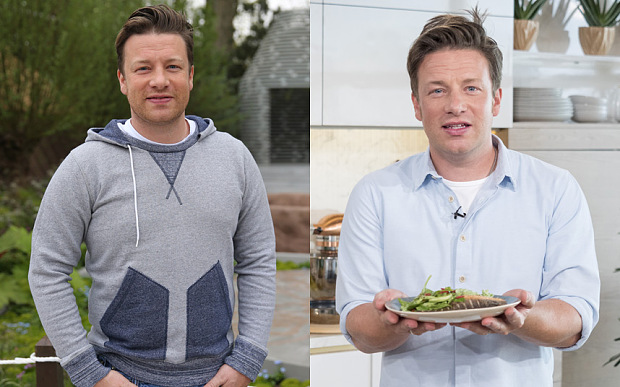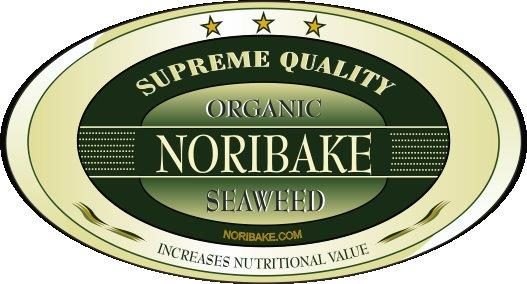Written by Alice Smellie – Daily Mail – 2015

Jamie Oliver last month attributed his recent weight loss to seaweed, calling it ‘the most nutritious vegetable in the world’. And he is not alone in believing so – seaweed is fast becoming the greatest trend in food since Oliver brought the word ‘pukka’ into common parlance. ‘Seaweed has many health benefits and there’s been a huge increase in demand,’ says Ruth Dronfield, managing director of Atlantic Kitchen, whose edible seaweed products.
Great for weight loss
Low in carbohydrates and calories, seaweed could help you on the way to a slender figure. There is a natural fibre in sea kelp called alginate, which inhibits the enzymes that digest fat, so less is absorbed by the body. In a 2014 study at Newcastle University, alginate was added to bread which patients ate along with a carefully recorded diet, and their overall fat absorption was measured. Researchers found that even a small amount of alginate reduced fat absorption by a third. Results from further tests suggested that alginate could reduce the amount of fat absorbed by the body by around 75 per cent. Another weight-loss ingredient is fucoxanthin, a pigment found in brown seaweed. Emerging research suggests it could burn fat, and help to slow its production. Seaweed can also make you feel fuller without eating more calories. ‘As well as being low-calorie and high-fibre, seaweed rehydrates and swells in the stomach, which makes you feel fuller,’ says Ashley Jones, of Selwyn’s Seaweed in Swansea. The shop has made the Welsh delicacy Laverbread, boiled local seaweed, for many years.
Jamie Oliver last month attributed his recent weight loss to seaweed, calling it ‘the most nutritious vegetable in the world’. And he is not alone in believing so – seaweed is fast becoming the greatest trend in food since Oliver brought the word ‘pukka’ into common parlance. ‘Seaweed has many health benefits and there’s been a huge increase in demand,’ says Ruth Dronfield, managing director of Atlantic Kitchen, whose edible seaweed products.
Thyroid Saviour
‘Lots of us are deficient in iodine, especially women,’ says nutritionist Christine Bailey. ‘It is used by your thyroid gland to help regulate metabolism and the development of both skeleton and brain, among other things.’We store iodine in the breasts – the bigger the breasts, the higher your daily requirement is likely to be. The recommended dietary allowance (RDA) is 150 mcg a day, but it is thought that half of us are consuming less than 130 mcg.’Key sources of iodine are fish, shellfish and seaweed, which is jam-packed with the stuff. A sprinkling every day supports the thyroid hormones, which play a key role in metabolism. The more efficient your metabolism, the more effectively you’re burning food.’
Boosts iron levels
‘Not only is seaweed high in iron, it is also rich in Vitamin C, which helps your body absorb iron,’ says Christine Bailey. ‘Different types have different iron levels, and it depends on whether you have it fresh or dried. Sea lettuce has 5.3 mg per 100g when fresh, but this is multiplied by ten when it’s dried.’Iron helps to make red blood cells, without which we can suffer fatigue and poor immune response. The RDA for men is 8.7 mg and 14.8 mg for menstruating women.
Keeps hearts healthy
‘The high fibre content is good for maintaining cholesterol levels – and chemicals in seaweed called polysaccharides have anti-coagulant properties,’ says Christine Bailey. ‘This means they decrease the tendency of blood to form dangerous clots.’ Seaweed is also a good source of potassium, which may help to prevent high blood pressure.
Beauty Benefits
It works on both the inside and the outside. ‘Seaweed not only cleanses the skin, but also repairs and revitalises it,’ says Margo Marrone, of The Organic Pharmacy. ‘It contains healing zinc, soothing and cleansing magnesium, antioxidants, anti-inflammatory chlorophyll, and omega fatty acids, which deeply nourish.’
What to cook with it
‘Seaweeds are vegetables, and different types behave in different ways when cooked,’ says Ruth Dronfield. ‘For example, dulse is a natural flavour enhancer, with a rich savoury taste that boosts dishes such as risotto. ‘Or there is sea spaghetti – nature’s pasta. It looks like spaghetti and you cook it in the same way. We recommend you use wakame seaweed in the same way as spinach. Throw it in warm water to hydrate, then add it to soups, salads and smoothies.’
